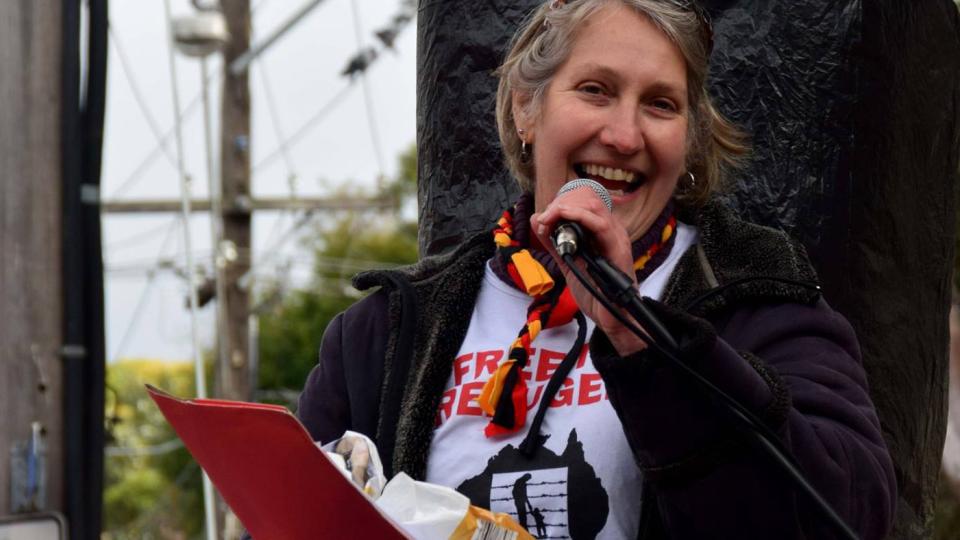Fact, not fiction, is the only way to deal with history wars

Andrew Bolt takes me to task for being “irresponsible” for “propagandising” about the colonial invasion and subsequent massacres of First Nations people.
He also takes issue with my support for the growing number of councils across Australia that are leading the debate on the so-called history wars and deciding against celebrating on January 26 in favour of something more inclusive.
I am proud that Moreland Council decided to abandon the fiction that Australia Day is a unifying date. I also take pride in the fact that Bolt has lumped me together with outspoken human rights campaigners such as Gillian Triggs, Adam Goodes and Robert Manne.
For the record, on September 13 Moreland Council only decided to: acknowledge that January 26 marks the beginning of the British invasion; acknowledge that Aboriginal and Torres Strait Islander people never ceded sovereignty; acknowledge that the first Day of Mourning was held on January 26, 1938; support the “change the date” campaign; and advocate to the federal government to change the date.
But if you were to believe Bolt, I and other councillors should be tried for treason. Bolt, like US President Donald Trump, specialises in alternative facts. His attempt to malign those with whom he disagrees politically is well known.
In 2001, a Federal Court judge found Bolt and his publisher Herald & Weekly Times had seriously breached the Racial Discrimination Act. The case, brought by Pat Eatock on behalf of nine other Aboriginal community members, marked the beginning of the conservative’s latest attempts to dismantle that act.
To be clear, the judge did not pass judgment on Bolt’s political views. What was on trial was Bolt’s total disregard for the truth.
Judge Mordy Bromberg ruled that Bolt’s sloppiness, “distortions of the truth and inflammatory and provocative language” were racially offensive and “destructive of racial tolerance”.
This is not news for those reading widely. But for those who rely on Bolt for their daily dose of who or what to rail against, it probably is.
Bolt argues, without a shred of evidence, that the Stolen Generation is a fiction. Not only is that patently wrong, it is a massive injustice to all those First Nations people who continue to suffer the intergenerational trauma that has come from this paternalistic and misguided practice. And, as we know, the practice is continuing with Aboriginal children still being taken from their parents at an alarming rate.
Researchers from the University of Melbourne, among others, say that to have a hope of closing the gap between the poor Indigenous health, education and social participation indicators compared to those of white Australia, Indigenous affairs has to become central to the nation’s policy agenda.
Local councils’ leading role in shining a spotlight on the jingoism the nationalists want to infuse into Australia Day come at a time when there is a new wave of militancy in the Aboriginal movement.
The Invasion Day marches in Melbourne have been growing and this year was at a record high. About 30,000 people, mostly non-Aboriginal, came along because they know that an accurate understanding of history can lead to better social and political outcomes for the marginalised First Nations people of this country.
Perhaps this explains Bolt’s attack on those he describes as “self-hating” — a term Zionists use to describe people of the Jewish faith who do not support the Israeli government’s apartheid policy of segregating Palestinians and Israelis.
The 2008 documentary Bastardy about actor Jack Charles’s life gives a clear picture of how the paternalistic policy of stealing children from their families has led to intergenerational trauma. It tells the story of how Jack, who became a “criminal” for leaving his foster home without permission, found it extremely difficult to develop intimate relationships.
How can a person feel belonging in a society in which they are marginalised, criminalised and separated?
Australia had a system of apartheid in place since the first colonisers arrived, and bits of its legacy remain. Recogising that Australia Day— which was only made a national public holiday in 1994 — is not inclusive is a small part of dismantling that colonial revisionism that Bolt is trying to uphold.
Bolt has a large platform to churn out his reactionary views, so the frenzied tenor of his columns confirm he is losing the argument, and perhaps the plot.
I’ve received a lot of hate mail, no doubt spurred on by Bolt’s misplaced ire. But I’ve also received a lot of support and encouragement for standing up for honesty and facts.
As the late Pat Eatock, also a member of the Socialist Alliance, said after the judgement against Bolt for racial vilification: “We expect truth and honesty from newspapers, whether it’s opinion or not it has to be based on fact, not on fiction.”
[Sue Bolton is a Socialist Alliance councillor on Moreland City Council.]